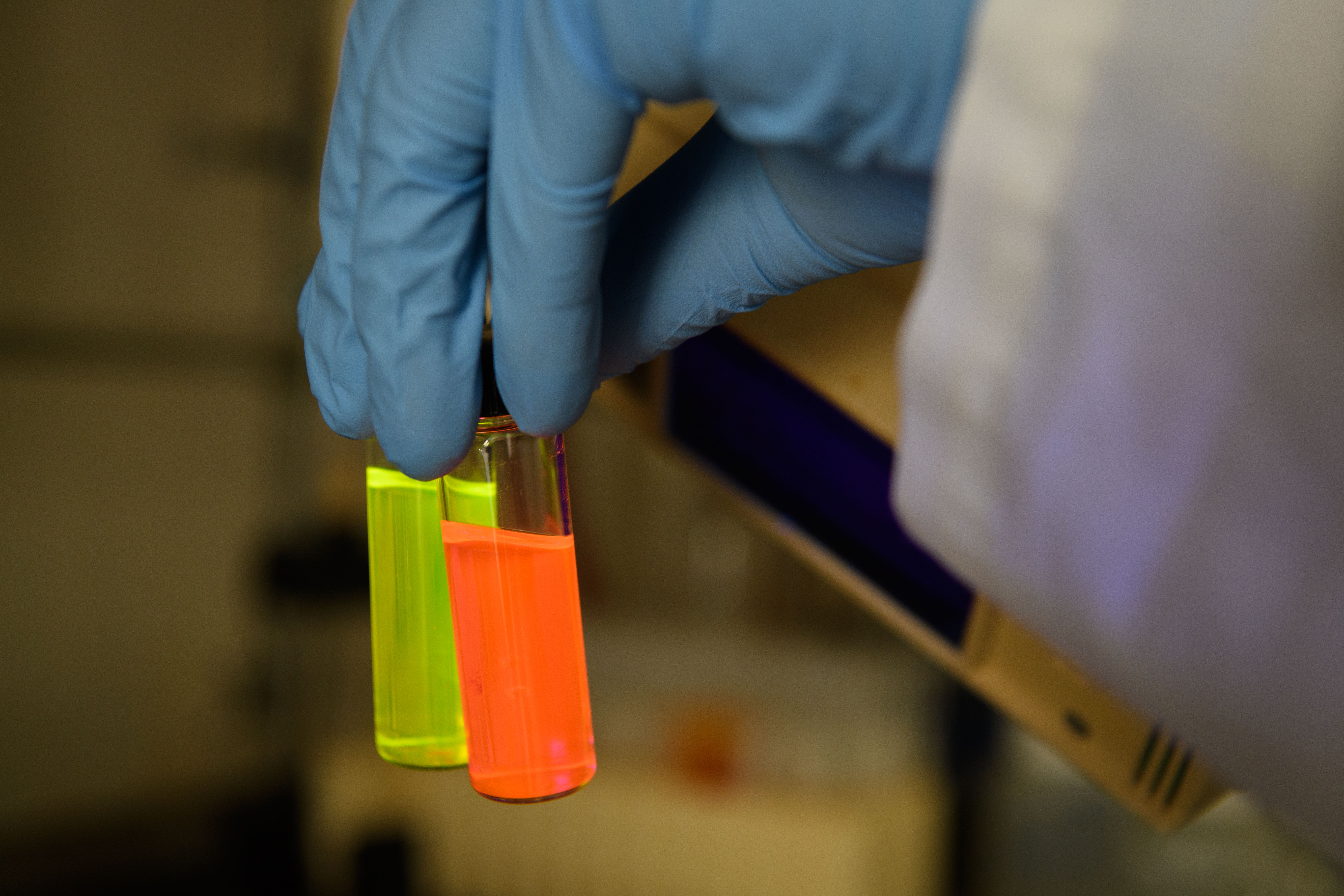Potentiometric Probes, a biotech startup based on UConn Health technology, has received a grant from the National Institutes of Health (NIH) to develop a new class of voltage-sensitive dyes.
These dyes do more than just change color, and are actually specialized chemical sensors. They serve as important tools for researchers studying the brain, which transmits information using tiny electrical signals among massive networks of interconnected brain cells called neurons.
Since all neurological disorders from Alzheimer’s to autism involve disrupted brain electrical signaling, these special dyes may play an important role in the labs of researchers working to understand these complicated and still mysterious disorders.
Voltage-sensitive dyes convert the tiny electrical signals inside cells to changes in light intensity detectable by microscopes. The movies captured by the microscope’s camera can resemble fireworks displays as bursts of electrical activity appear as bright and colorful flashes and spread to neighboring brain regions.
Similarly, these dyes can be used for studies of the heart, where electrical activity is what triggers the coordinated sequence of contractions to pump blood. Pharmaceutical companies may also find such dyes very useful for high-throughput drug screening and toxicology screening work as they search for new, more effective treatments for neurological disorders. Potentiometric Probes is working to serve this large emerging market via partnerships with key players in the pharma industry as well as with the FDA.
The technology was developed by professor of cell biology Les Loew and assistant professors of cell biology Corey Acker and Ping Yan. The trio has devoted much of their careers to developing and characterizing fluorescent probes of membrane potential like voltage-sensitive dyes. The team has even been providing their patented dyes to fellow researchers for the past 30 years, and began taking steps to commercialize their work more recently.
The company has seen an immediate stream of sales revenue from research labs around the world via their website www.potentiometricprobes.com and through a partnership with a large distributor, ThermoFisher.
“Dr. Loew’s experience is a prime example of how UConn can transform high-potential academic discoveries into viable products and services,” says Radenka Maric, UConn’s vice president for research. “UConn is committed to helping our preeminent faculty move their ideas beyond the lab so they can join the ranks of other successful Connecticut entrepreneurs and industry leaders, and have an impact in our communities and on the state economy.”
Potentiometric Probes was created in 2017 and is currently headquartered at UConn’s Technology Incubation Program facility in Farmington, Connecticut. Their latest project strives to produce a new class of voltage sensors that are both highly sensitive and extremely fast in order to provide the clearest possible readout of cellular voltages to researchers.
“We are grateful to NIH for this support. The grant serves as an endorsement of our products as valuable tools for biomedicine and gives us the opportunity to try some new ideas for making even better voltage sensors,” explains Loew.
Potentiometric Probes is currently hiring a talented Master’s degree chemist from a Connecticut university to accelerate the development of new voltage sensors.



